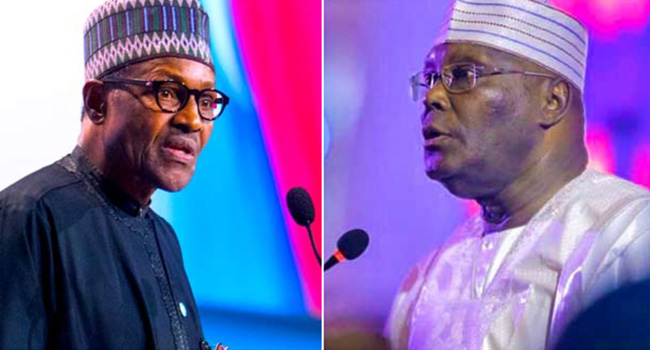Former Peoples Democratic Party, PDP, presidential candidate, Atiku Abubakar, on Monday slammed President Muhammadu Buhari over his recent comparison of Nigeria’s fuel price with that of Saudi Arabia and other countries paying higher.
Speaking through his Media Aide, Paul Ibe, Atiku described Buhari’s comparison as, “needless and unnecessary.”
Recall that President Muhammadu Buhari had said fuel will now be sold at N161 per litre in Nigeria.
Speaking during his Independence Day nationwide broadcast, Buhari had noted that other nations such as Ghana, Niger, Chad Saudi Arabia sell petrol at a higher price than Nigeria.
Faulting the president’s remark, Ibe wondered why Buhari would compare Nigeria with Saudi Arabia, which pays a minimum wage of over Three Hundred Thousand Naira.
According to Ibe: “That comparison is unnecessary and needless because the situation in Saudi Arabia is different from Nigeria, I’m told, though yet to verify that minimum wage in Saudi Arabia is equivalent of N375, 000 so why will you compare such countries.
“It’s like comparing oranges and apples if not why you now compare an economy where the minimum wage is N375, 000 to that whose minimum wage is N30,000.
“The comparison is needless, unnecessary and there can be no justification. At this point, we need to focus on our own internal challenges and see how we can creatively address them and that was why Atiku Abubakar had long ago said that subsidy as it was then was not sustainable and something needed to be done.
“Unfortunately, it’s coming at a time when the odds are all staked against Nigeria. We are chasing the prospect of a recession, we just came out of COVID-19 and things are very difficult for millions of Nigerians who are trying to make ends meet, and they are now faced with this.
“The timing wasn’t a smart one, it could have been done earlier.
“But thankfully they have come to acknowledge what his Atiku has been saying that the subsidy regime as it was not sustainable and does not make economic reality against the times we are in.”

